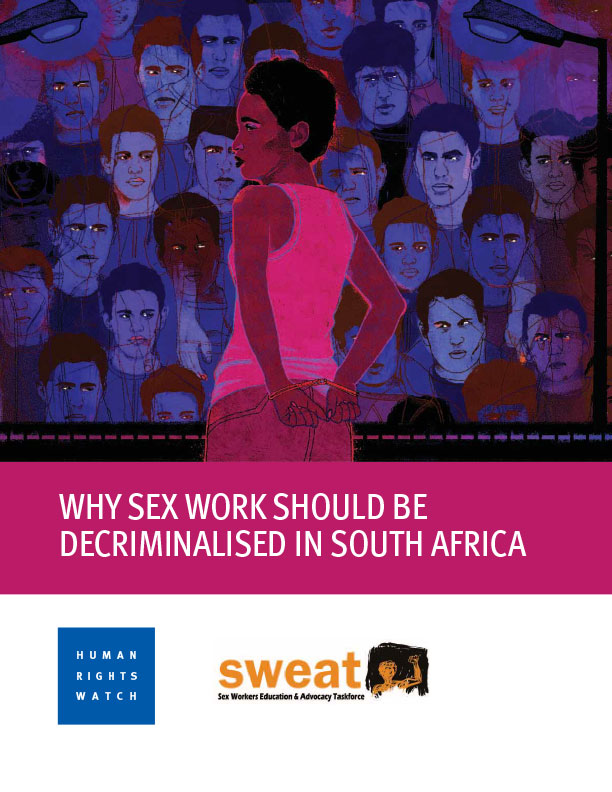South African law criminalises both the sale and purchase of sex and other aspects of sex work. These prohibitions have not stopped many thousands of mostly poor and often black women in South Africa choosing sex work as their best available option. But arrests and detentions, fines and sexual exploitation by the South African Police Service make this difficult work harder and more dangerous in a country suffering from high levels of violence against women.
Why Sex Work Should be Decriminalised in South Africa describes how criminalisation undermines efforts to end the HIV pandemic and access to healthcare for sex workers, how frequent harassment, arrest, and police detention keeps them from their families and their work, and how these vulnerable women have little access to justice when they experience rape, theft, and other crimes.
Female sex workers in South Africa interviewed for this report, mostly single mothers with sometimes six or seven dependents, want their bodily autonomy and dignity respected, an end to police harassment, and safer places to work.
With South Africa’s progressive constitution in hand, sex worker organizations and other civil society groups have campaigned for years for decriminalisation. They have been joined by much of South Africa’s health sector that has already taken big steps to address the stigma and abuse as well as improve access to healthcare. Human Rights Watch calls on the South African government to fully decriminalise consensual adult sex work and to adopt an approach towards sex work that respects and protects the rights of this vulnerable group, and responds to their needs.


